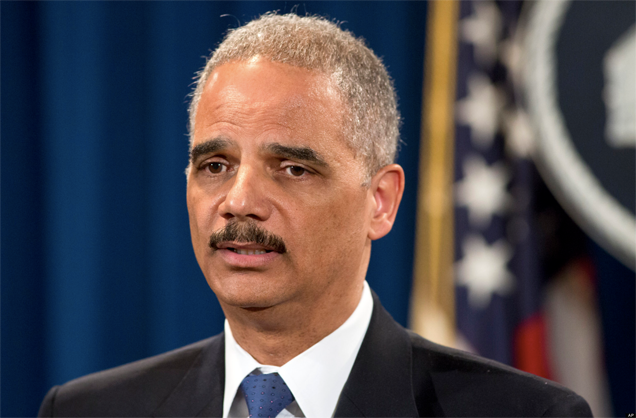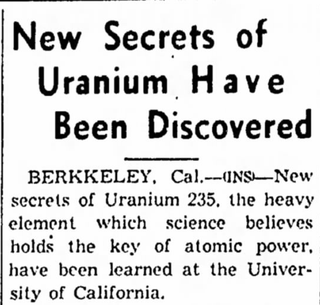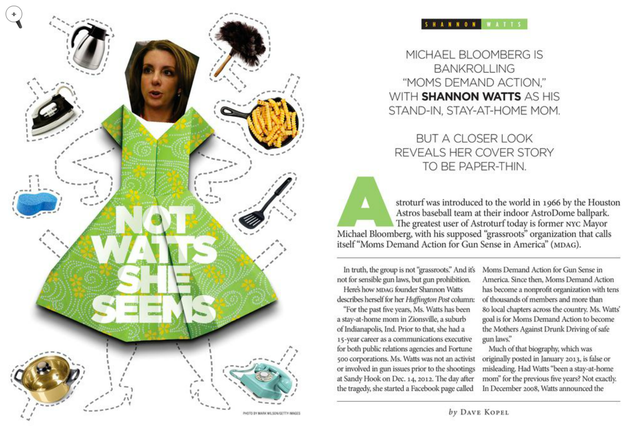Back in October of 2012, Lena Dunham sold a comedy memoir to Random House for $3.7M with an illustrated, 66-page proposal. The first season of
Girls ended mid-June of that year—if you want a picture of where we, collectively, stood with Horvath and Co.—and so the news of the book deal was received about as warmly as you'd expect. Today's New Yorker published its first "Personal History" column relating to the book, due out at the end of September, and it's some hardline Dunham for sure. But is that good or bad? Still can't tell for sure.
Girls is a funny thing: A story about some fairly shitty people, well-told on balance, that we treat like a reality show about white girls in a precious bubble of privilege and self-absorption. As a concept, it's a double lightning-rod comprising the words "feminism" and "hipster," the two most volatile words in the English language ca. 2012.
We have a propensity for taking women, young women especially, at face value. Young women are not alone here: Dave Chapelle quit comedy when he realized the racists weren't laughing with him, but at him; Kurt Cobain killed himself in part because his rapist fans were winning. I get infinitely more laughs with jokes about theater than I do about football. Taylor Swift continues writing singles about the haters because we've convinced ourselves that she isn't making conscious choices to write about love, an abiding subject in poetry for a while now, but in fact just writing her diary for our consumption.
Leonard Cohen, Bob Dylan, Lyle Lovett, Johnny Cash: Those are artists, because their experience—of white heterosexual masculinity—is after all
universal. Everybody can identify with the love of a good woman, the vicissitudes that attain thereof, but nobody wants to hear about some dumb white girl getting dumped. We can all agree that Rabbit, Run and Portnoy's Complaint are literary classics, because after all, haven't we all been there? How could it be a canon if it didn't accurately describe the lives of every human that matters? Who cares, Lena?
For some reason, when we go to appointments to help my mind, it's always my father who comes. My mother comes to the ones for my body.
Autobiographical works of art are not autobiographical works of nonfiction, a tautology that spawns thinkpieces with every Sad Young Literary Man's latest take on his fabulously unique life. But we never make the jump, with women. All women are
de facto character actors, unless they are virginal ingenues or femme fatales, because all stories—we have an abiding sense—are written by men. And the ones that aren't (if we can't fill in the authorial blanks with imaginary Svengalis, with showrunner daddies taking the work in hand; if we can't self-soothe away the cognitive dissonance), we despise: Veena Sud, Lena Dunham, Mindy Kaling, Emily Gould get subjected to a rigorous rundown of their arrogance, their absolute gall, in treating their own lives as uniquely fascinating in and of themselves.
Any one of these women
may be an asshole, but probably not all of them. That sounds unlikely. And moreover, it doesn't matter: When somebody tells you their story, and your response is "Who the fuck do you think you are to tell a story," the asshole is you. Rich Juzwiak recently changed my mind entirely on the subject of marriage equality, actually, by breaking down the fight into pieces I could understand: That perfect behavior, that any qualification at all, for "earning" the right to your humanity, debases everyone involved. Whether Lena Dunham is an asshole is not the issue and never was, but it certainly provides excellent cover for the ground war.
When I see waning literary giants, your Franzens and your Roths and so on, bitching about how all you need to be a literary giant in the modern dissipated era is an internet connection and an unhealthy obsession with Twilight fan fiction, it always takes me right back here: To this idea that those old white dudes have every right to be terrified of the world as it is, just like the poor oppressed Christian right, or anybody else who is used to having the loudest voice in the room. What Franzen finds meaningful, important, revelatory, is Franzen; everybody's just getting too loud. Volume outstrips value swiftly, when only certain people should be allowed to speak.
One night, my father becomes so frustrated by my behavior that he takes a walk and doesn't come back for three hours.
While he's gone, I start to plan our life without him.
But if you look at any internet discussion thread about hot-button matters, race or sex or gender, you will see one thing happen every time: Somebody provides a hot take on the subject, and is greeted with absolute rage. A woman, or a person of color, or a gay person, is presumed to be the default, the straight white male, until proven otherwise. Until they declare their
bona fides—actually I am gay/black/female, so please don't lecture me or try to be an ally right now—they're just asking for trouble, because it's what we hear when we read words. (Assuming we don't call them out for lying, "No True Scotsman" style, erasing them altogether.)
Is this unavoidable? Are we stuck with the Default Voice in our heads for the rest of our lives? I don't think so. I think that's the moment we are in, at the dawn of the internet where we very much are, that all words and stories and thoughts and opinions come to us as received wisdom from atop White Guy Mountain. And I think a tricky symptom of that is, we look at women telling stories and still see them as characters in someone else's. We look for hidden authorial intent and, stymied, we invent it whole: Whatever it takes to avoid what we're looking at directly, because we've never seen it before.
A symptom of leukemia is dizziness, and I have that, when I sit up too fast or spin around in circles. So I quietly prepare to die in the next year or so, depending on how fast the disease progresses...
Especially for comics and comedy writers; standups have it
rough. Amy Schumer did okay her first season, but her jokes only made sense—we only caught up to her—in the very successful Season Two. Because a woman making jokes about what a slut she is, and this has been true throughout the history of comedy, is not actually making jokes about things that matter: She's asking you to validate what a slut she is. There's no artifice to this art, being a woman is already a performance: She might as well be telling you what she had for lunch today, because she's only telling you what you need to know about her. It's the same reason it took us a decade to comprehend The Comeback (and even now that's mainly just gay guys, according to Twitter).
The most popular female comedians have always either excised their sexuality altogether (Poundstone, O'Donnell, DeGeneres, Notaro; Morgan Murphy and Maria Bamford, for the most part) to render objectification out of the equation, or more recently jacked it up to such crazy levels (Handler and Lampanelli, Leggero and Schumer) that the joke becomes apparent. Either way we're not talking about
real life, because when you're already a joke the jokes don't come so easy: Name the five most successful gay male comedians you can think of. Then x out every one of them that's better known as a writer, off-screen, or as a character in someone else's story.
Just imagine if we removed the frame around every single comedian in that way, asked the men to codify and justify their humor and constantly reassure us that it's all pretend. The trigger warning is the death of comedy; the prior restraint of mere existence, this life without its own subjectivity, is a challenge that traps lots of very funny women. "Let me preface this joke with an explanation that it is a joke. The next one will also be a joke, but don't worry: I'll make sure to remind you of that as well." To be always-on, performative,
and to be desirable and to always keep your seat on the bucking razor's edge of double consciousness, that's a lot to be asked for, when all you want to do is make people laugh, and maybe think.
Reading this first excerpt of Lena Dunham's forthcoming book, preceded as it has been by a year's worth of death knells and straight-up unadorned hating, I was irritated. Of course I was; it's irritating as hell. But the funniest and loveliest thing about Dunham has always been, to me, the deadpan irony of exactly those choices.
Tiny Furniture is every bit as self-excoriating as the first season of Girls was, and just as confusing for those of us (most of us) who find it hard to switch gears, to hear that register at all: The one where a woman telling you the worst things about herself is an attempt to bridge the gap, to create art that transcends selves, rather than to simply confess.
The first doctor... invites me to play with the toys scattered across her floor. She sits in a chair above me, pad in hand. I have the sense she will gather all kinds of information from this, so I put on a show that I'm sure will demonstrate my loneliness and introspection...
...She asks me to share my three greatest wishes. "A river, where I can be alone," I tell her, impressed with my poeticism. From this answer, she will know that I am not like other nine-year-olds.
Sarah Silverman once said—quoting somebody else, I'm just assuming; a strong white man with excellent posture and a goatee he can stroke, perhaps a raging masturbation habit that will make us all laugh with shared embarrassment—that most or maybe all comedy comes from shame: Our identification with the shameful story, and the release we feel when we realize we are not alone and never were.
But without doubling down on that classic Apatow touch, without letting us in on (and into) the joke, you're just confessing to shit nobody wants to hear, which is maybe the only thing more boring than listening to somebody else's dream: In order to feel shame, you have to know better in the first place.
Morning After is a new home for television discussion online, brought to you by Gawker. Follow @GawkerMA and read more about it here.





































